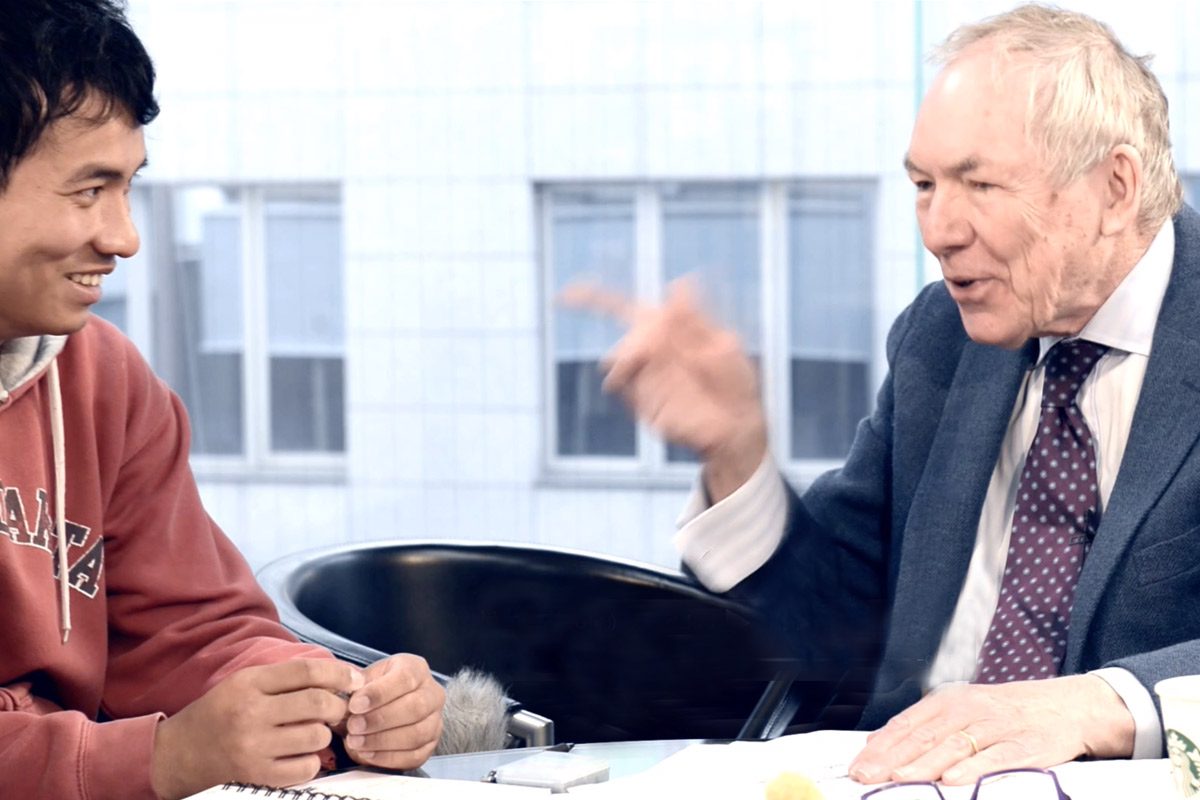Some education scholars are known for formulating rules.
John F. Fanselow is revered for encouraging teachers to break them – and his new book, Small Changes in Teaching, Big Results in Learning, seems sure to add to that reputation.
Fanselow, a Teachers College Professor Emeritus, is one of the world’s leading authorities on TESOL (teaching English to speakers of other languages). For more than 50 years, beginning before his field-changing 1987 book titled (naturally) Breaking Rules, he has urged teachers to closely observe their own classroom practices, ferret out often unconscious cultural assumptions about how talk and learning occur, and then “do the opposite.”
[Learn more about TC’s Applied Linguistics & TESOL Program.]
“Since I first was asked to supervise teachers practice teaching in a teacher training college in Nigeria 57 years ago, I have seen teacher preparation and ways to improve teaching and learning as a joint enterprise of exploration rather than a series of directives from ministries, school districts and politicians to implement,” writes Fanselow, who worked for the Peace Corps in Africa throughout the 1960s, in his introduction to Small Changes.
Fanselow earned his Ph.D. at Teachers College in 1971 and subsequently joined the faculty, founding an off-campus M.A. program in Tokyo that lasted for decades. He received TC’s Distinguished Alumni Award in 2005. He later served as President of International Pacific College in New Zealand and as a visiting professor at Kanda University of International Studies in Japan. Most recently, reflecting his interest in online learning, he has been teaching courses with the International Teacher Development Institute (iTDi), which published Small Changes.
Since I first was asked to supervise teachers practice teaching in a teacher training college in Nigeria 57 years ago, I have seen teacher preparation and ways to improve teaching and learning as a joint enterprise of exploration rather than a series of directives from ministries, school districts and politicians to implement.”
—John F. Fanselow
Small Changes (available from Amazon in both Kindle and print versions) provides an assortment of videos, activities and essays to “stimulate fresh thinking about language learning,” many of which call for teachers and students to record and transcribe their interactions and use of language. For teachers, the ultimate goal is to reflect on questions that Fanselow, a past president of both TESOL and New York TESOL, has posed to teachers throughout his career, including:
- To what extent is what we actually do, want to do and think we do in tune?
- In what ways are activities we consider beneficial perhaps not and activities we consider detrimental perhaps useful?
- To what extent do our activities enable students to learn on their own and to what extent do they teach awareness?
For Fanselow, the latter point, grounded in a Deweyan view of learning as a hands-on process of making meaning that is personally relevant, is especially important. He suggests having students reread passages on subsequent days and compare the length of their phrases and the number of substitutions they make as they re-read the passages. And he includes suggestions from students themselves on ways that learners might re-format text in order to make rules about language – and then break them.
Such exercises “require thinking rather than memorization,” Fanselow writes. “They also illustrate the play spirit of language and engage the natural curiosity we all have to learn.”
